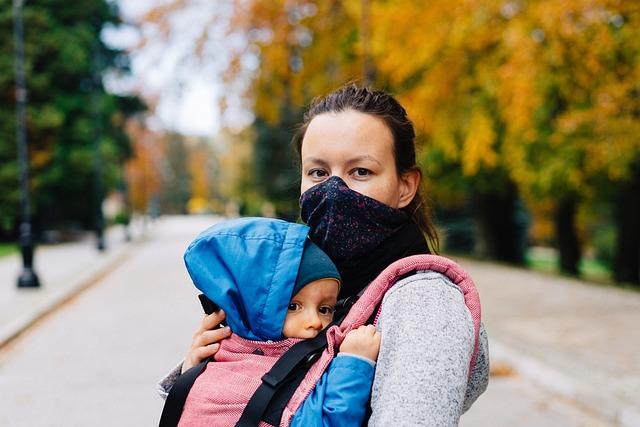so,you’ve just become a new parent—congratulations! Whether you’re overwhelmed by all the baby gadgets or confused by the endless advice from well-meaning friends and family,don’t worry—you’re not alone. navigating baby health can feel like decoding a secret language, but it doesn’t have to be so complicated. In this post, we’re breaking down easy, must-know tips that every new parent should have up their sleeve to keep their little one happy and healthy without losing their sanity. Let’s dive in!
Getting Started with Baby Basics Understanding Your Newborns Sleep Patterns Simple Meal Ideas for Happy Healthy Tummies Keeping Your Little One Safe and Sound Around the clock
Navigating your newborn’s sleep can feel like unlocking a secret code, but understanding their natural rhythms is a game-changer. Babies typically cycle between light and deep sleep in short bursts, frequently enough waking every 2-3 hours. Recognizing sleepy cues – like yawning or rubbing eyes – allows you to help them drift off before fussiness takes over. Creating a calm bedtime ritual, such as soft music or gentle rocking, can cue your baby’s body to settle. Remember, consistency is key; small habits build big comfort. Also, keep in mind that newborns thrive in a cozy but safe sleep environment – a firm mattress with no loose bedding or toys is the way to go!
When it comes to feeding your little one, simplicity is your best friend. Whether breastfeeding or bottle-feeding, aim for regular, calm meal times that help your baby feel nourished and content. Introducing easy, nutrient-packed solids around 6 months is a fun milestone. Start with smooth purees like sweet potato, avocado, or banana – all favorites that support happy tummies. Here are a few quick meal ideas to keep your baby smiling:
- Breakfast: Mashed banana with a pinch of cinnamon
- Lunch: Pureed carrots and peas blend
- Snack: Steamed apple slices, cooled
- Dinner: Sweet potato and avocado mash
| Safety Tip | Why It Matters |
|---|---|
| Always place baby on their back to sleep | Reduces risk of SIDS |
| Keep crib free of pillows and blankets | Prevents suffocation hazards |
| Use a firm mattress with fitted sheet | Supports proper spinal alignment |
| Install outlet covers and secure cords | Avoids accidental shocks or strangulation |
Q&A
Q&A: New to Baby Health? Easy Tips Every New Parent Needs!
Q: I’m a new parent and honestly a little overwhelmed. What’s the first thing I should focus on regarding my baby’s health?
A: Totally normal to feel overwhelmed! Start with the basics: keep your baby well-fed, clean, and agreeable.Frequent diaper changes,proper feeding (whether breastfeeding or formula),and plenty of cuddles will build a strong foundation for healthy growth.
Q: How do I know if my baby is feeding enough?
A: Look for signs like consistent weight gain, several wet diapers a day (usually around 6-8), and your baby seeming satisfied after feeding. Every baby’s a bit different, but if you’re worried, don’t hesitate to chat with your pediatrician—they’re your best health buddy!
Q: What about sleep? How much do newborns actually need?
A: Newborns can sleep up to 16-17 hours a day, but it’s usually in short bursts. Don’t stress if sleep feels all over the place—this is normal! Safe sleep practices like putting your baby on their back and keeping the crib clear of toys help keep things safe.
Q: Bath time tips? should I bathe my baby every day?
A: You don’t have to give a daily bath—2-3 times a week is enough for newborns to keep their skin healthy. Between baths, use a damp washcloth to clean the face, neck, and diaper area. Keep bath time short and cozy!
Q: What’s the deal with baby skin care? Should I use special products?
A: Babies have super sensitive skin, so opt for fragrance-free, gentle baby products. Avoid harsh soaps or anything with lots of chemicals. If you notice redness or dryness, ask your pediatrician for recommendations.
Q: When should I start tummy time? Is it really critically important?
A: Yes! Starting tummy time early (even just a few minutes a day) helps build your baby’s neck and upper body strength. it also supports motor development. Just make sure it’s supervised and done when your baby’s awake.
Q: How do I keep my baby healthy during cold and flu season?
A: Good question! Wash your hands before handling baby, keep sick visitors away, and keep your baby’s environment clean. Dressing your baby appropriately for the weather and regular pediatric check-ups are key too.
Q: I’m worried about vaccines. are they really necessary?
A: Vaccines are super important—they protect your baby from serious illnesses and keep them safe. They’re tested thoroughly and recommended by pediatricians worldwide. If you have questions or concerns, your doctor can walk you through the details.Q: Any simple ways to boost my baby’s immunity naturally?
A: Promoting good nutrition through breastfeeding, plenty of skin-to-skin contact, good sleep routines, and keeping baby’s environment smoke-free can all support their immune system. Remember, the basics go a long way!
Q: How can I tell if something’s seriously wrong with my baby health-wise?
A: Trust your instincts. Signs like persistent high fever, difficulty breathing, poor feeding, unusual rashes, or extreme lethargy mean it’s time to contact your pediatrician immediately. When in doubt, it’s always best to get a professional opinion.
Being a new parent is a wild ride, but these easy tips will help you feel more confident in caring for your baby’s health. Remember, you’re doing an amazing job!
The Way Forward
And there you have it—some simple, down-to-earth tips to help you navigate those early days with your little one.Remember, being a new parent is a wild ride, full of surprises and learning curves, but you’ve got this! Trust your instincts, take things one step at a time, and don’t be afraid to ask for help when you need it. Baby health might seem overwhelming at first, but with these easy tips in your toolkit, you’re off to a great start. Now go enjoy those precious moments—they fly by faster than you think!










